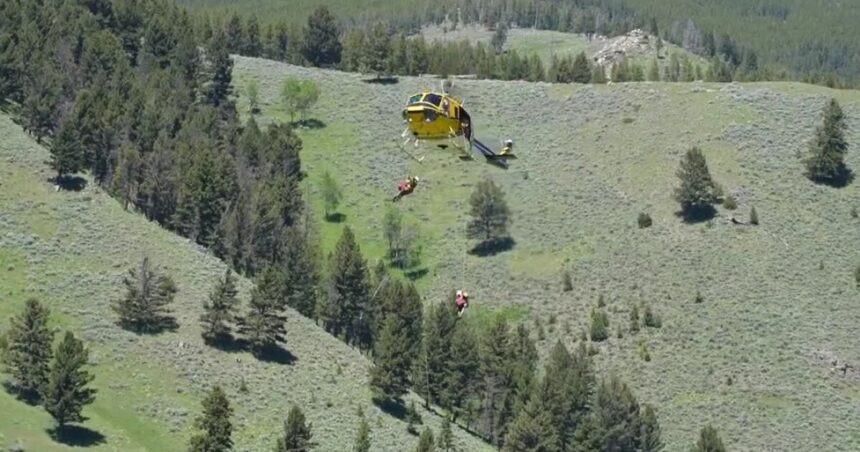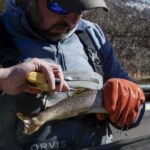BOZEMAN — If you thought normal firefighters were brave, well, get a load of the Gallatin Rappel Crew.
“So any job in fire is taxing on its own. It’s extremely dangerous and you’re putting your life on the line. So when it comes to a rappel crew, you’re just adding this extra element of danger,” says Morgan De Meyer, public affairs specialist for the Custer Gallatin National Forest.
Morgan told me what the Gallatin Rappel Crew is all about.
“Our rappel crew and other rappel crews are usually used in instances of IA, which is initial attack. Which is when a fire is first starting,” he says.
For over 20 years the Gallatin Rappel Crew has been fighting wildfires. This rappel group, or helitack crew, is one of just 12 in the nation. But how are rappel groups different from any other wildfire fighting crew?
“We like to use the rappelers when we’re in a tough, remote spot. Because the helicopters can hover at 300 feet above treeline, we can pretty much get in anywhere,” says Morgan.
Rappel crews are all about speed and accessing remote locations. When the Gallatin Rappel Crew is called to an initial attack, they are en route within 15 minutes. But this crew doesn’t only fight fires here in Montana.
Morgan tells me, “We are a national recourse. So they can respond to anything across the nation. That includes Alaska and we also work with Canada.”
Gallatin Rappel Crew has been all over the nation, from Fairbanks, Alaska all the way to Florida. Morgan tells me the 18 members of this crew work six months at a time and are constantly on the go.
“This job is not for the weak,” he says. “Usually on fires, our rappel crew has to pack out gear that is dropped down to them. So shooting to that 100 to 120 pound range per person”.
Which means these rappelers also have good navigational skills. Sometimes they carry these 100-pound packs for up to 10 miles as they find their way out of the woods.
Wednesday afternoon, I got to witness one of the Gallatin Rappel Crew’s training sessions in Durnam Meadow.
Winds were hitting up to 30 miles per hour at ridge tops, which added an additional challenge to an already dangerous task. Travelers on Gallatin Canyon road stopped in to watch as the Gallatin Rappel Crew lowered themselves out of the helicopter that was hovering around 200 feet in the air. Now, picture they’re doing that in the middle of the woods above a blazing wildfire.
“Working with the forest service in general, I get to meet so many spectacular people that work for us. And these guys in specific—it’s just inspiring,” says Morgan.





